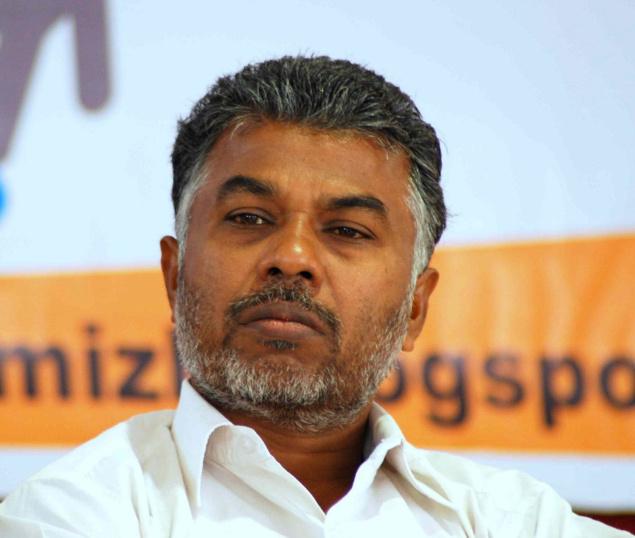CHENNAI: While appealing to writer Perumal Murugan to reconsider his decision to renounce writing, speakers at ‘The Hindu Lit For Life’ on Friday said private “fascist” groups that attack freedom of expression were the greatest danger of current times.
The speakers wanted the coming together of diverse liberal groups to defend freedom of speech.
At a panel discussion on ‘Free Speech in Peril’, retired judge of the Madras High Court, K. Chandru, said it was no longer just the question of whether people had a constitutionally guaranteed right to expression, which had been articulated extensively by the courts through a plethora of judgments. Rather, the real danger now seemed to be private “fascist” groups which wanted to decide on what should and should not be read by people.
Justice Chandru said the case of Mr. Murugan had some curious aspects. His book Maadhoru Bhaagan was first released in 2010, but violent reaction to the book began after an English translation was released four years later.
“The whole protest seems to be one orchestrated by a group in New Delhi which specialises in reading Indian authors and begins such campaigns,” he said.
Contrary to popular perception that caste was an issue only in the Southern and Northern parts of the State, Mr. Murugan’s books, such as Saathiyum Naanum, portrayed the deeply entrenched caste prejudices in the Western region of Tamil Nadu. “The 75-year-long self-respect movement in Tamil Nadu has miserably failed to uproot caste,” he opined.
Calling the “peace agreement” the Namakkal administration had facilitated as lacking in legality, he said the Constitution did not provide for agreements that violated the fundamental rights of citizens. He also suggested that a forum be formed to help people whose rights were violated by fundamentalist groups.
Chairman of Kasturi and Sons Limited, N. Ram, said that in Tamil Nadu, there had been support traditionally for those who criticise religion and lampoon gods as long as there was no intention to offend. But those who write about sensitive caste issues had got into trouble.
“Secularism demands that we stand up for our rights against all fundamentalist forces — whether they are religious or casteist,” he said.
Mr. Ram said the protests against Mr. Murugan had to be located in a larger context of what had transpired in the country over the last quarter of a century. “There have been consistent attempts to stifle the right to express,” he said, citing a range of examples such as the banning of Salman Rushdie’s Satanic Verses and the hounding of painter M.F. Hussain, whose creations were attacked by orchestrated campaigns of the Hindu Right.
Mr. Ram said Mr. Murugan had to be persuaded to withdraw his declaration that the “writer Perumal Murugan is dead” and not accept the agreement reached at the “peace meeting”.
Chairman of the Media Development Foundation, Sashi Kumar, said that in Mr. Murugan’s issue, the complicity of the state, through the local administration, in suppressing a constitutional right had made it unique. “This is what khap panchayats do and this is not expected from the state which has a duty to protect the rights of citizens.”
Mr. Kumar said while it was clear that the protests against Mr. Murugan had been orchestrated by Hindutva groups, the response of the Dravidian parties had been highly disappointing.
“Mainstream Dravidian parties have been silent and marginal on this issue. We would have thought they would be in the forefront of defending Mr. Murugan. This has not happened,” he pointed out.
Also, the media could have played a more proactive role in the matter. “There could be no doubt on what position to take. We have to defend freedom of expression,” he said.
Continue to write: Chetan Bhagat
In another session, popular writer Chetan Bhagat assured Mr. Murugan asserting: “I am with you. You shouldn’t be giving up writing. In fact, you should continue to write.”
The discussion was moderated by historian A.R. Venkatachalapathy.

